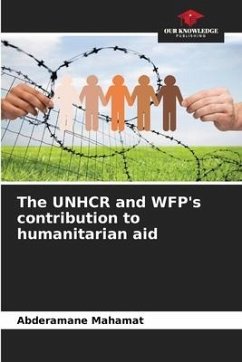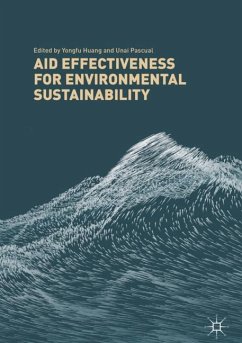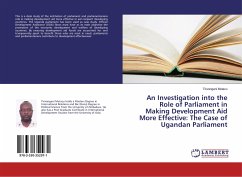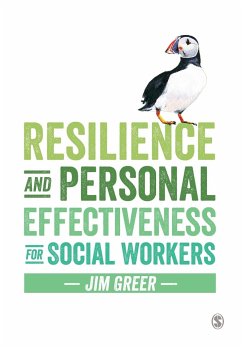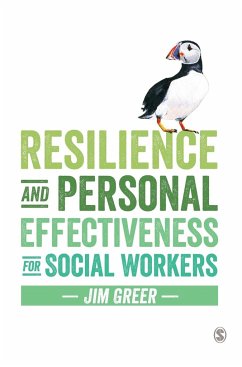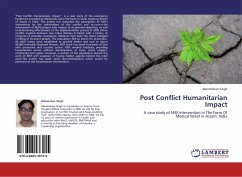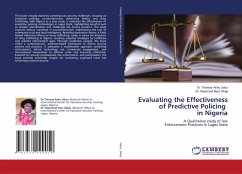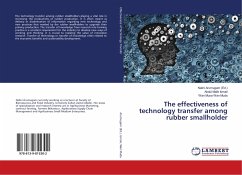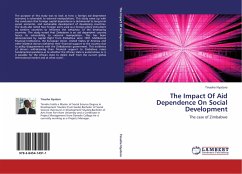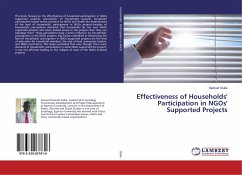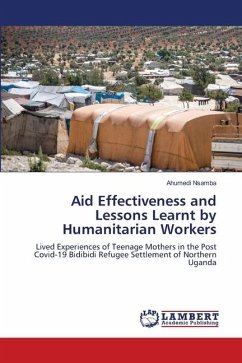
Aid Effectiveness and Lessons Learnt by Humanitarian Workers
Lived Experiences of Teenage Mothers in the Post Covid-19 Bidibidi Refugee Settlement of Northern Uganda
Versandkostenfrei!
Versandfertig in 6-10 Tagen
29,99 €
inkl. MwSt.

PAYBACK Punkte
15 °P sammeln!
Established in 2016 and receiving over 285,000 refugees, Bidibidi emerged the largest refugee settlement in Uganda by 2018. The outbreak of Covid-19 provided invitation to multiple humanitarian workers with a lot of aid for the refugees but with a worsening situation in the post pandemic period especially among teenage mothers. This study employed a qualitative method of research design undertaken using snowball and purposive sampling methods to obtain interviews from 10 teenage mothers and 2 officials from the UNHCR and the OPM respectively. The findings of the study revealed various teenage ...
Established in 2016 and receiving over 285,000 refugees, Bidibidi emerged the largest refugee settlement in Uganda by 2018. The outbreak of Covid-19 provided invitation to multiple humanitarian workers with a lot of aid for the refugees but with a worsening situation in the post pandemic period especially among teenage mothers. This study employed a qualitative method of research design undertaken using snowball and purposive sampling methods to obtain interviews from 10 teenage mothers and 2 officials from the UNHCR and the OPM respectively. The findings of the study revealed various teenage mothers' experiences that ranged from economic disruptions, psychological impacts, social impacts for example the closure of Rabita events that were aimed at recovering the property lost during the war among others. The study identified inadequate resources and project short time scopes as key issues that bring about failed effectiveness and later compromised aid sustainability among the teenage mothers in the settlement. Increased attention on monitoring and evaluation by the Office of the Prime minister (OPM) and the UNHCR would be paramount to avoid duplication and project overlaps.





